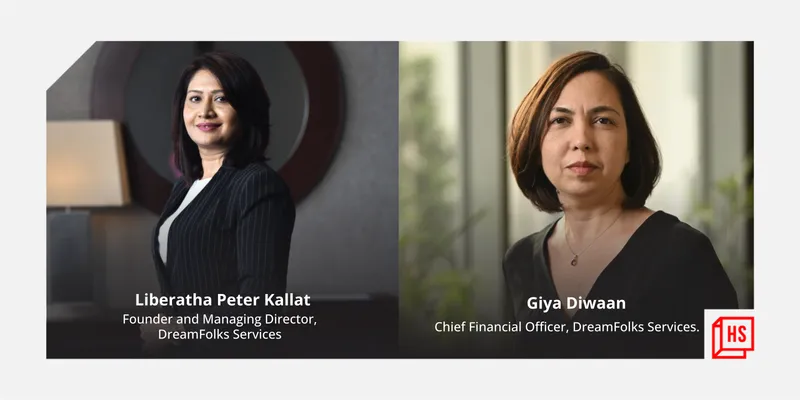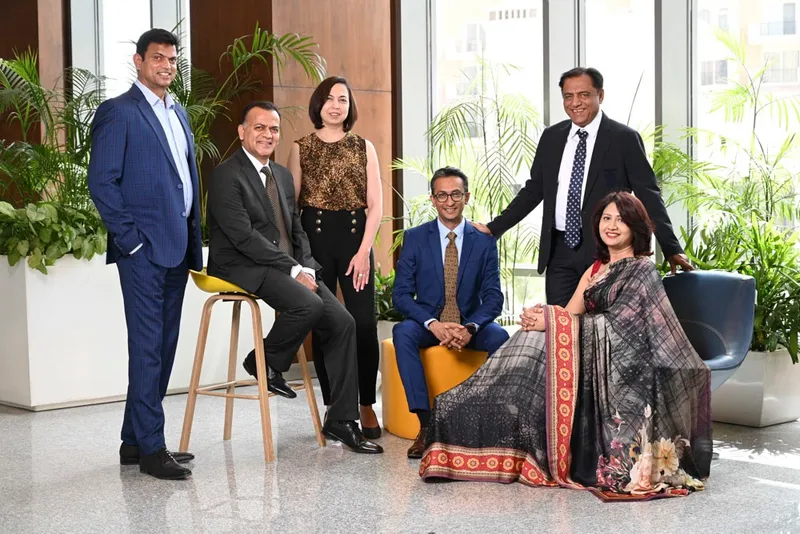Profitable since inception, this woman entrepreneur's airport service aggregator platform is eyeing IPO
Founded by Liberatha Peter Kallat, DreamFolks Services claims to be the market leader when it comes to aggregating airport services like lounge access, meet and assist, and transit service, among others. The IPO-bound company is now looking to boost global expansion.
Away from the hubbub of India’s startup ecosystem celebrating its many milestones in the last couple of years, Gurugram-based startup has been establishing its dominance in aggregating airport services and filed for Draft Red Herring Prospectus (DHRP) with the Securities and Exchange Board of India (SEBI) early this year.
Founded in 2012, DreamFolks Services began as an aggregator platform for airport lounges and gradually expanded its services to include airport services such as lounge food and beverage, meet and assist, nap room access, spa, baggage, and airport transfer.
Bootstrapped and profitable since inception, the company hopes to launch its initial public offering (IPO), post receiving regulatory clearance, in the current quarter ending in June on a 100 percent Offer for Sale (OFS) basis, according to Liberatha Peter Kallat, Founder and Managing Director; and Giya Diwaan, Chief Financial Officer, DreamFolks Services.
“It becomes more and more exciting. So far, we did not have any external investors and were only focused on growing this company. Now, simultaneously, the focus would also be on how we can add more value for our shareholders...and we will continue to generate cash profits and reinvest in the business,” Giya tells HerStory.

The eureka moment
While working as a general manager at the Plaza Premium Group, Liberatha initiated the company’s lounge service in India beginning at the Hyderabad and Delhi airports.
“That was the time when I spotted an opportunity because the lounges were only for the business class passengers who alone didn’t cover the huge investments in building the lounges,” Liberatha recalls, adding that the professional relationship she had developed over the years impacted in a big way.
In March 2012, Liberatha began working towards building DreamFolks and signed Mastercard as its first corporate client. She says, onboarding a company like Mastercard as the first client opens a big opportunity for a startup.
Operating on a B2B model, Liberatha worked on an asset light model by leveraging the networks of card companies and airport service operators.
She began by negotiating and partnering with service operators like Premium Plaza, Oberoi, and other lounge companies, and took these services to banks and card companies to offer their customers.
With 44 corporate clients in 121 countries, she also focused on building strong tech capabilities that allowed clients to customise the offerings and even design their own programmes.
In the pre-covid years, the startup clocked a revenue of Rs 370 crore, and is now on track to have a similar run rate. Although the travel industry was among the worst hit, DreamFolks did not incur any loss during the pandemic, although volumes of transaction and revenue were one fourth of its pre-covid levels.
Incubating an industry

Management team of DreamFolks Services
Giya explains the startup banks on customer acquisition through its B2B clients, reaching about 10 million end users per annum. In India, the startup claims to be a dominant player with no direct competition.
Liberatha says that while building DreamFolks entailed only the routine challenges that most startups and companies are bound to face, she emphasises that it has “kind of incubated the niche airport services industry”.
DreamFolks claims to have made the airport services, that were earlier restricted to business or first class travellers, accessible to a large chunk of economy travellers and generated a level of awareness around it.
As a result of this and programmes offered through the startup, Liberatha says service operators have benefitted greatly with a drastic increase in their footfalls by 60 to 70 percent.
"We actually ended up creating the entire ecosystem benefitting both ends of the service operators as well as the card companies who could also create a good customer engagement programme through travel," she adds.
Moving ahead, the startup aims to boost its global presence and client acquisition, beginning with the Southeast Asian and the Central and Eastern Europe, Middle East and Africa (CEMEA) region.
While the Gurugram-based startup claims to be a market leader in India boasting partnerships with almost every bank and card companies, and gears up to face competition abroad, the entrepreneur believes that at the end of the day, the focus remains on traveller's experience, regardless of the geography.
Edited by Megha Reddy









